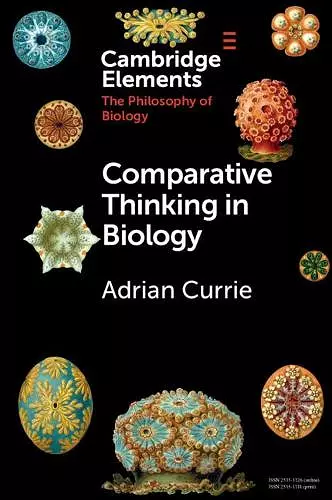Comparative Thinking in Biology
Format:Paperback
Publisher:Cambridge University Press
Published:18th Feb '21
Currently unavailable, and unfortunately no date known when it will be back

An analysis of 'comparative thinking': integrating living systems into models of the evolutionary processes which shaped them.
Analyses 'comparative thinking'. This involves situating living systems into models of various evolutionary processes, comparing them with ancestral relatives and with analogous evolutionary outcomes. The importance of comparative thinking is demonstrated via examination of comparative psychology and macroevolution.Biologists often study living systems in light of their having evolved, of their being the products of various processes of heredity, adaptation, ancestry, and so on. In their investigations, then, biologists think comparatively: they situate lineages into models of those evolutionary processes, comparing their targets with ancestral relatives and with analogous evolutionary outcomes. This element characterizes this mode of investigation - 'comparative thinking' - and puts it to work in understanding why biological science takes the shape it does. Importantly, comparative thinking is local: what we can do with knowledge of a lineage is limited by the evolutionary processes into which it fits. In light of this analysis, the Element examines the experimental study of animal cognition, and macroevolutionary investigation of the 'shape of life', demonstrating the importance of comparative thinking in understanding both the power and limitations of biological knowledge.
ISBN: 9781108727495
Dimensions: 228mm x 152mm x 5mm
Weight: 130g
100 pages